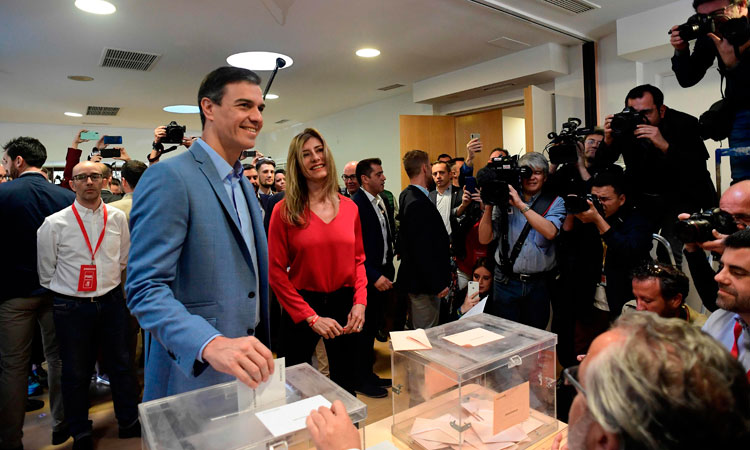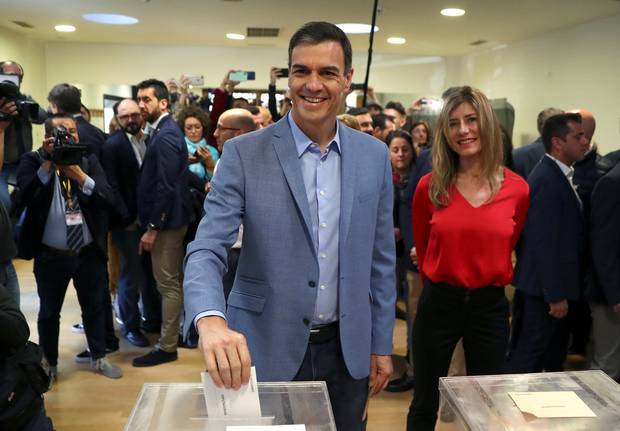
Prime Minster Pedro Sánchez’s party polled twenty nine per cent of the votes and will need the help of either left-wing Podemos and regional parties, or the centre right, to form a government.
For the first time since military rule ended in the 1970s, a far-right party is set to enter parliament
Spanish Prime Minister Pedro Sanchez looks set to regain power after his Socialists overcame a historic challenge by right-wing nationalists in elections, a result he portrayed as a morale booster for the European Union.
The Socialists gained seats in one of Spain’s most hotly contested elections in decades, which featured the rise of far-right party Vox whose ultra-nationalist campaign echoed political trends across Europe where traditional parties have ceded to anti-immigration and eurosceptic forces.
Turnout was 75.8%, the biggest for several years and 9% higher than the previous election in 2016.
In his victory speech, Mr Sánchez said the party’s big challenges were to fight inequality, advance co-existence and halt corruption.
“The Socialist party has won the general election, and with that the future has won, and the past has lost. (Applause.) In the first place I want to thank from my heart the more than seven million, 300-thousand Spanish men and women who have given us their vote, and trusted in the Socialist party to govern the country for the next four years. Thank you from my heart,” Socialist Party leader, Pedro Sanchez said.
Spain’s centre-right Ciudadanos (‘Citizens’) leader Albert Rivera said his party will take on the leadership of the country’s opposition, after the Socialist Party claimed victory in the country’s national election.
Also, Ciudadanos party leader, Albert Rivera said: “We will be watching over those who govern very closely. We will lead and we will keep this government in check so they don’t squash families and the middle classes, the self-employed or the workers, so they don’t do the unreasonable and so that you have a voice in parliament. The leaders of the opposition will be the lawmakers of Ciudadanos. We are at your service.”
With more than 99 percent of votes counted, Ciudadanos was on 57 seats in the 350-seat parliament, against 66 for the mainstream conservative People’s Party (PP).
Outside, hundreds celebrated in the streets of madrid, waving red party flags and chanting ‘Long live Spain’ and ‘Long live Socialism’.
With this win, Mr Sánchez must now look for support from the smaller parties or from the centre right, but that’s no easy solution.
An alliance with Ciudadanos (57 seats) would give him the numbers, but its leader, Albert Rivera, is bitterly critical of Mr Sánchez’s collaboration with Catalan separatists.




